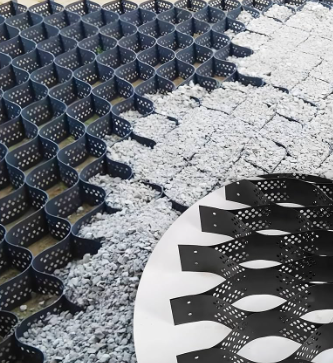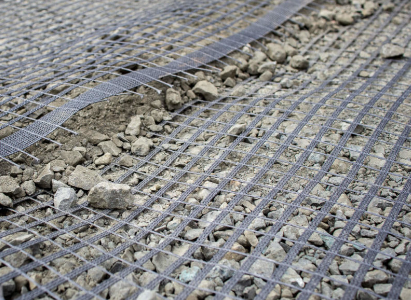- Understanding the Role of Geomembrane Liners in Waste Management
- Innovations in Geomembrane Liners for Water Management
- Geomembrane Liners: A Comprehensive Guide
- The Future of Geomembrane Liners in Civil Engineering
- Geomembrane Liners: Enhancing Landfill Stability
Manager:Alvin Wang
WhatsApp:+62 8983806051
Tel:+86 10-5797-1075
Email:steelwang@okorder.com
Address:3rd Floor, No.2 Building, No.1 Sanlihe Road
What is geotextile mesh?
Have you ever wondered what geotextile mesh is?
Wholesale Geotextile Applications to polyester Geotextiles for Slope Protection and Stabilization.
Thus, it has a wide range of applications in many civil engineering and construction projects because of its unique properties and designs. In order to fully understand the concept behind geotextile mesh we have decided to explore what it involves, its composition, uses as well as benefits which can accrue from this in different fields.

Understanding Geotextile Mesh
Often referred to simply as geotextile, geotextile mesh is a synthetic fabric made from polymers such as polyester, polypropylene or polyethylene. Its structure is created by weaving or knitting fibres into a stable network therefore creating a kind of mesh that has various levels of permeability and strength. The specific characteristics of the geotextile are dependent on the choice of polymer as well as the weaving technique hence making them suitable for use in various kinds of engineering works.
Applications of Wholesale Geotextile
One major element when dealing with large scale infrastructural development processes where cost effectiveness and reliability are critical is wholesale geotextiles. This bulk purchasing option has immense advantages due to economies of scale allowing contractors and developers meet requirements relating to extensive infrastructure undertakings more effectively. Wholesale geotextiles are used in road construction projects, landfill management programs among others that solve soil stability problems such as erosion control and drainage management.
Polyester Geotextiles for Slope Protection
For instance, polyester geotextiles tend to be preferred over other types due their high durability ratings plus resistance against environmental stressors when slope protection methods are being applied. These textiles are specifically designed to counteract effects associated with steep gradients coupled with changing soil conditions so that their occurrence is either prevented or restricted by growth of vegetation cover on their surface. This is done by preventing soil particles from being washed away by water that is uniformly distributed across the slope surface and therefore ensuring stability for a long time as well as an attractive appearance in landscaping or embankment projects.
geotextile slope stabilization Techniques
Through using various methods, which are aimed at strengthening the structure of the soil and reducing chances of slippage, geotextile slope stabilization techniques can be implemented. The bearing capacities of slopes can be increased, runoff minimized while the effects of gravitational forces on buildings reduced through strategic placement of geotextile layers. Furthermore, slope stabilization measures are based on a combination of different materials such as geotextiles, geogrids, anchors and vegetation thus ensuring that comprehensive stability is achieved while conserving natural landscape and ecosystem integrity.
Advantages of Filament Geotextile
High tensile strengths make filament geotextiles ideal for such demanding applications as road building and foundation reinforcement, due to their puncture resistance qualities coupled with dimensional stabilities. Unlike conventional woven geotextiles where individual yarns are woven in a regular pattern to form a fabric like matrix; filament types have continuous fibres arranged uniformly thereby allowing this kind load transfer property unlike others. At the same time, they should also be able to resist heavy traffic loads as well as settlement pressures due to soil movements hence making engineered structures more durable than ever before.

Conclusion
In conclusion, modern construction and engineering practices cannot do without geotextile mesh which represents a versatile material that is very important. This material has multiple uses ranging from wholesale geotextile buying to special cases like polyester geotextiles utilized in slope protection and stabilization processes; this versatility sets it apart from other materials by offering unmatched performance together with durability among other benefits that may not be realized through any other alternatives available today. For tomorrow’s people who want sustainable urban environments characterized by resilient infrastructures and soil erosion, slope stability, built environment resilience are some of the most complex challenges that can only be addressed by using geotextiles with unique properties designed for such purposes.






